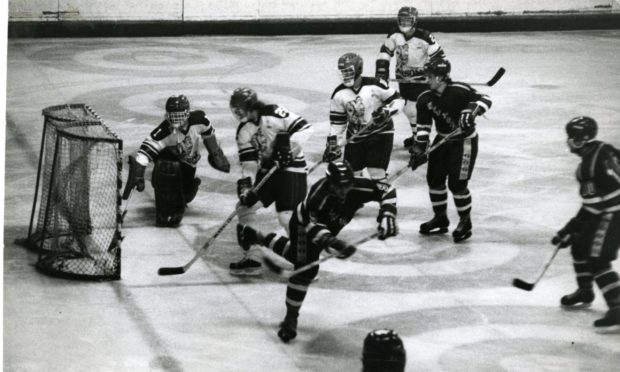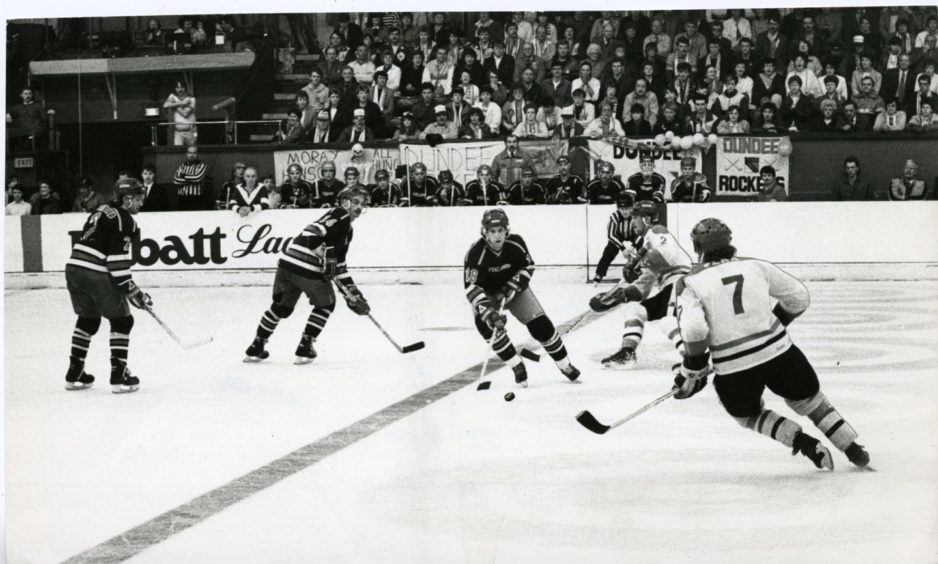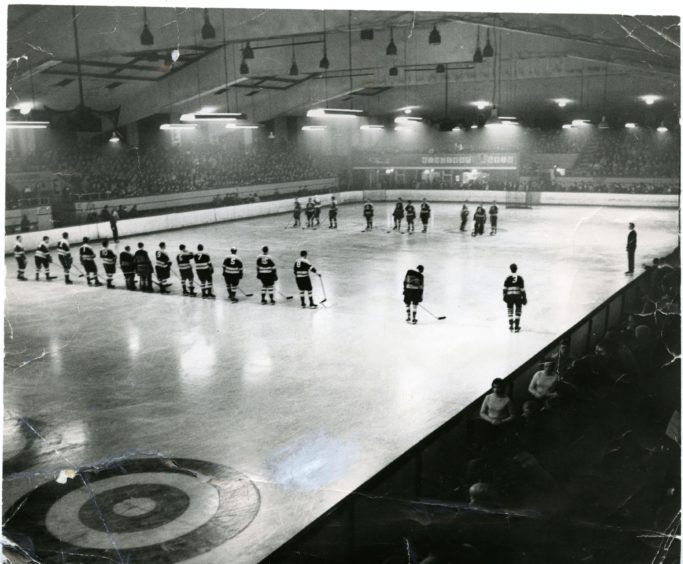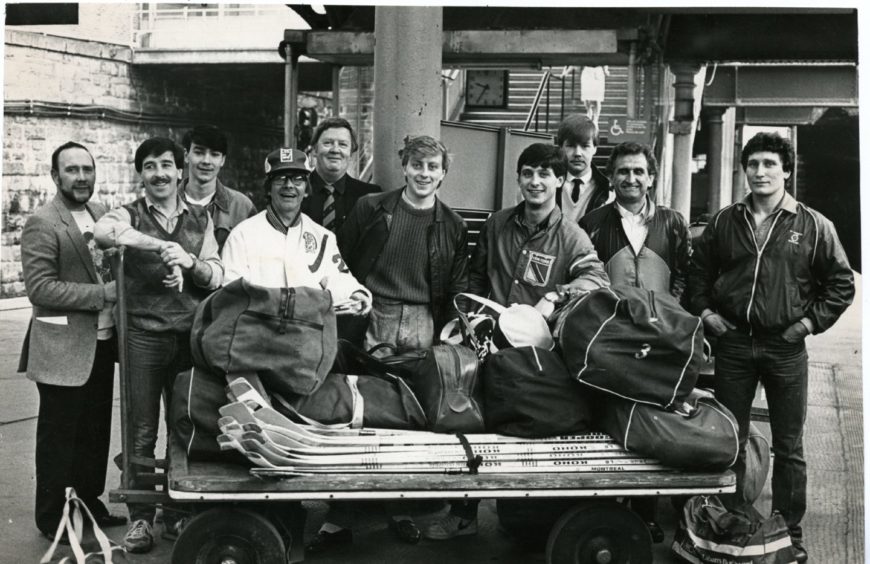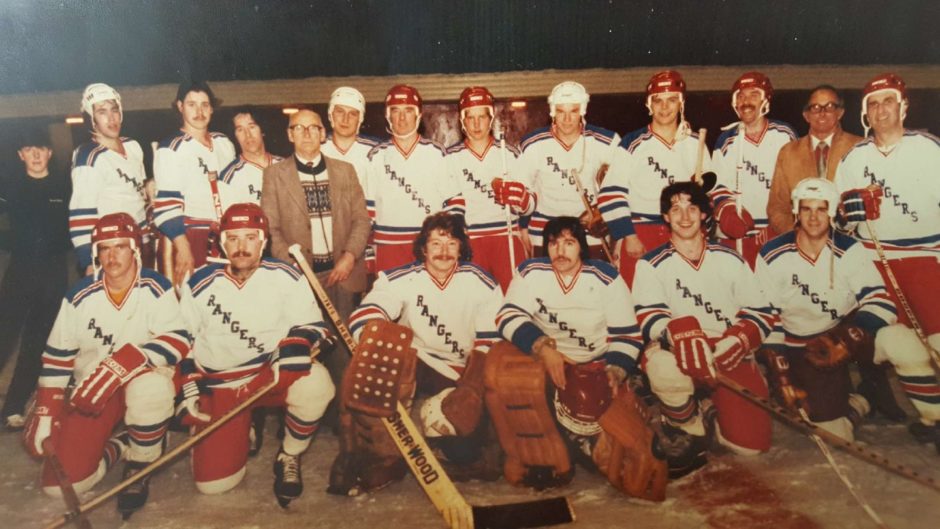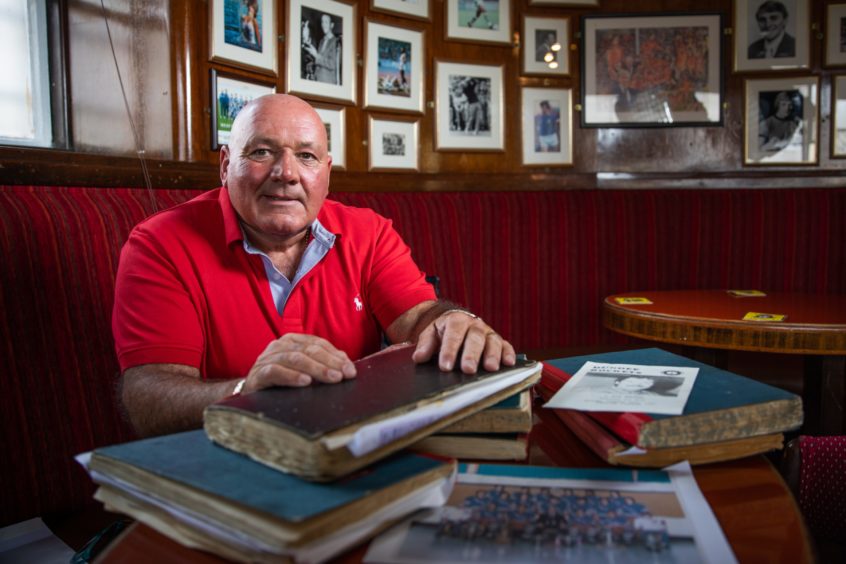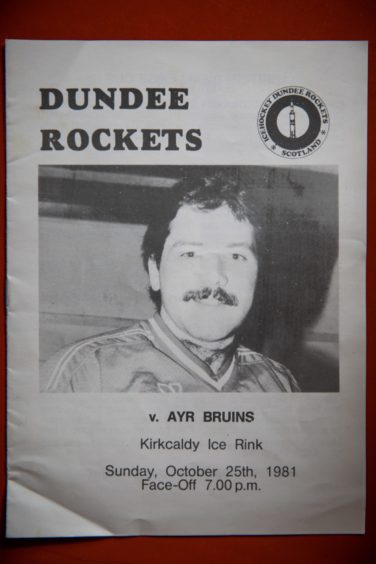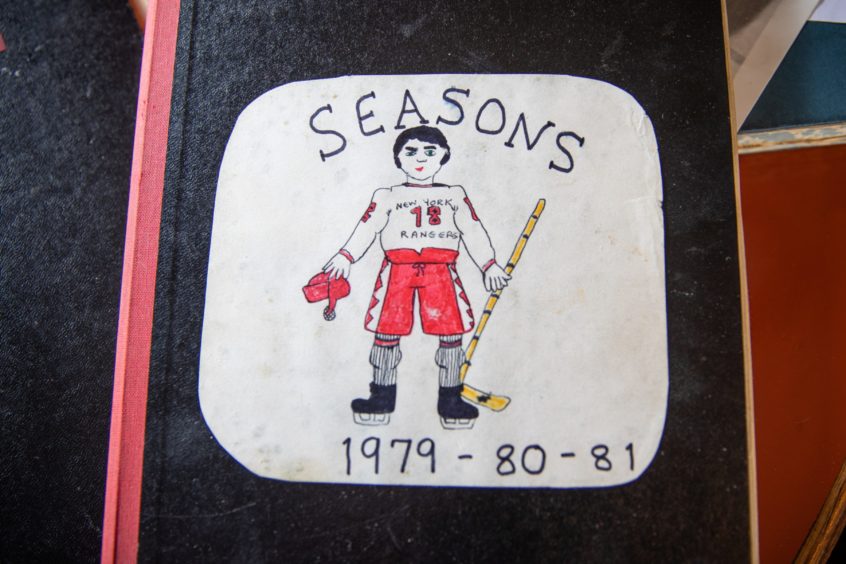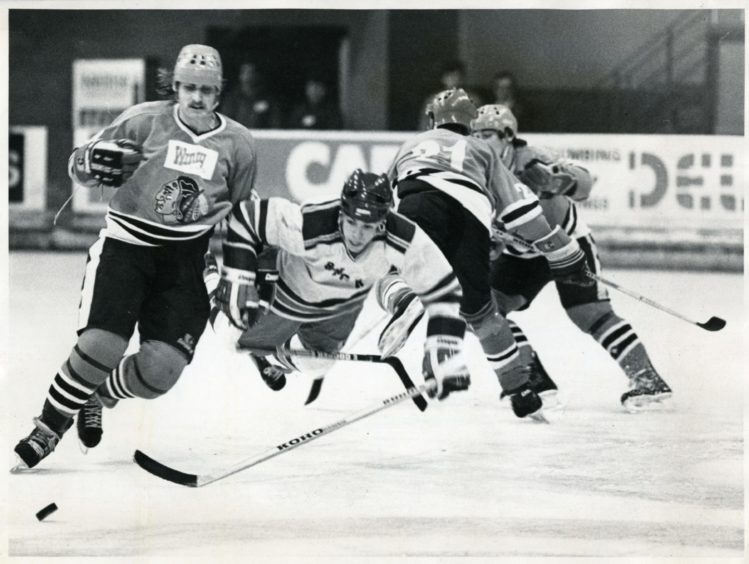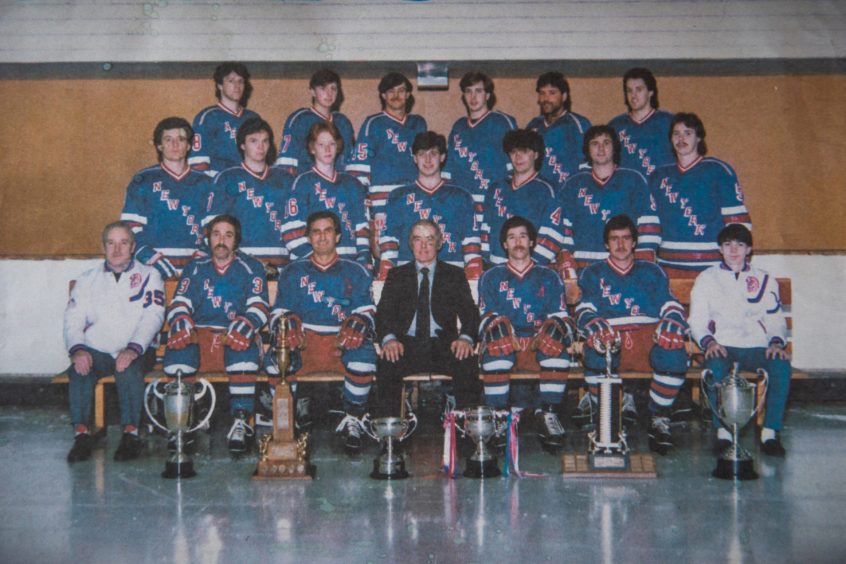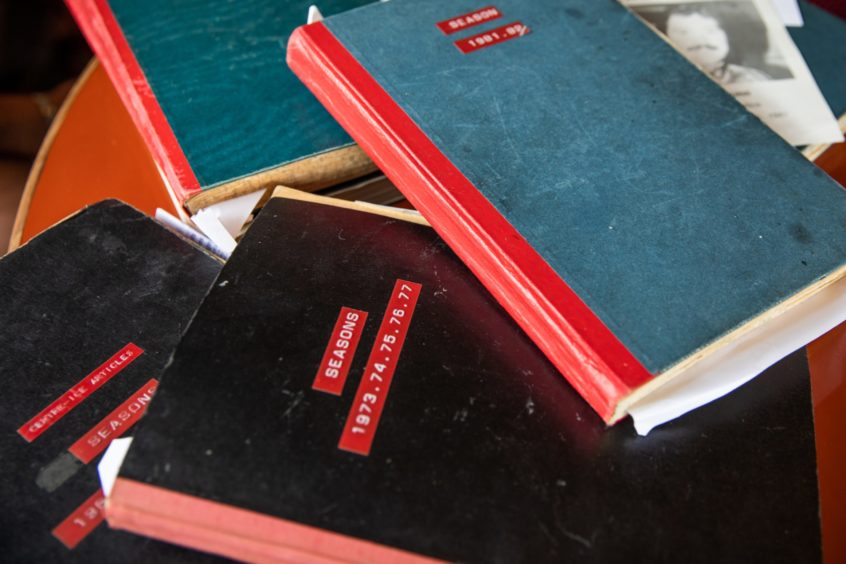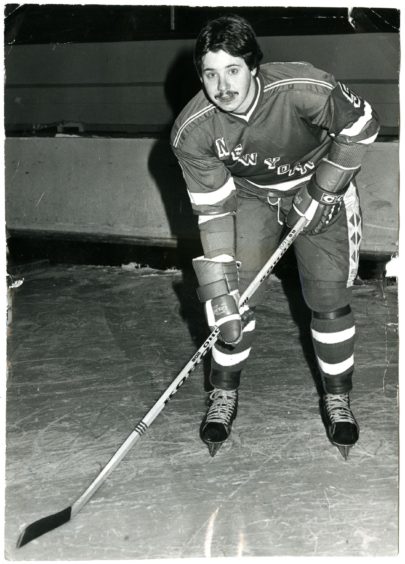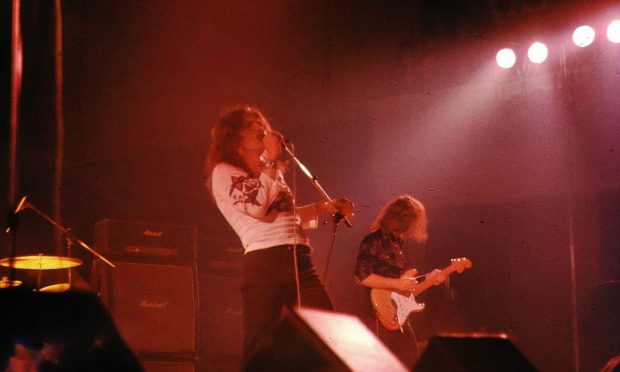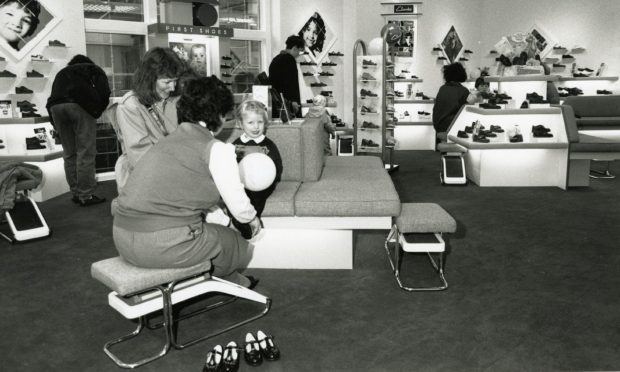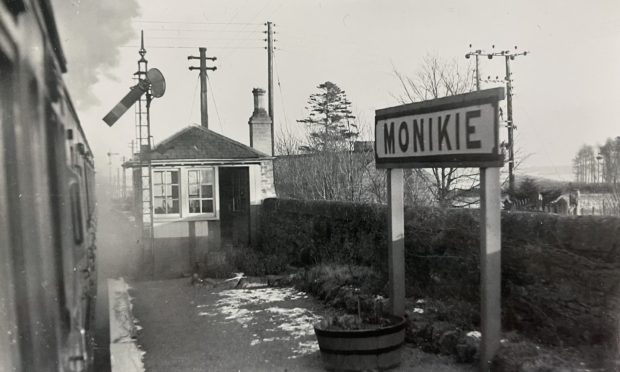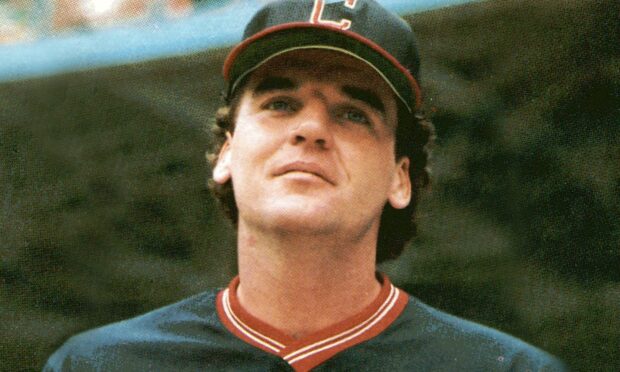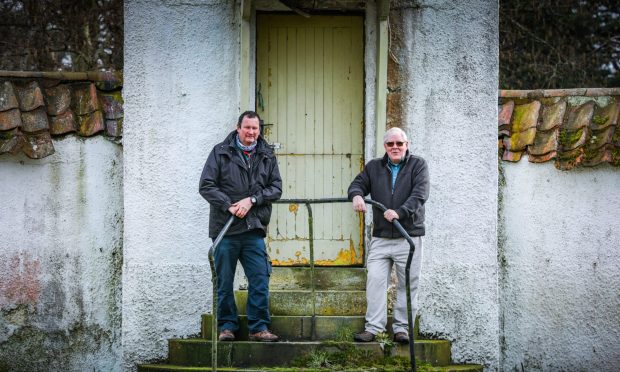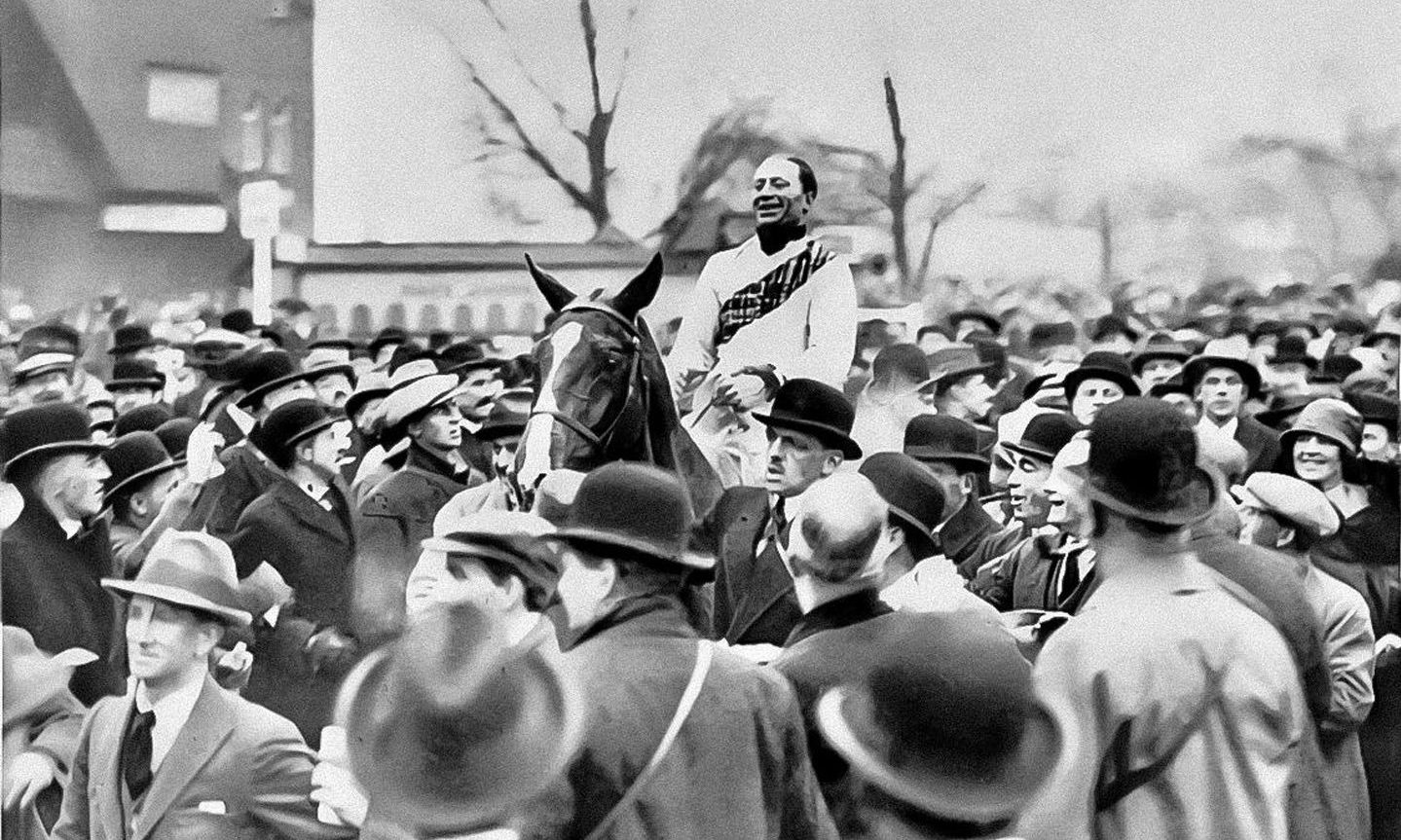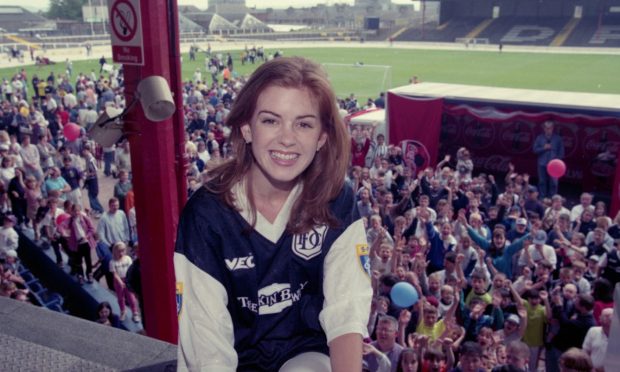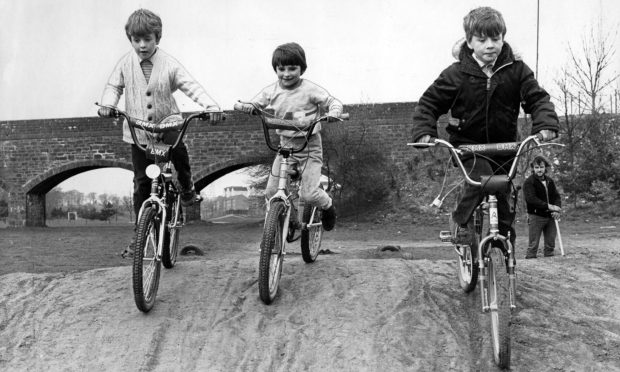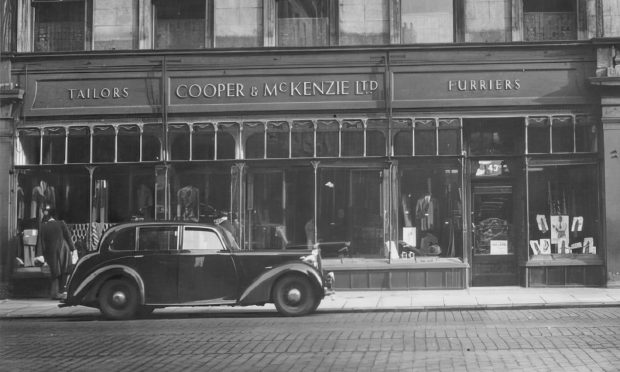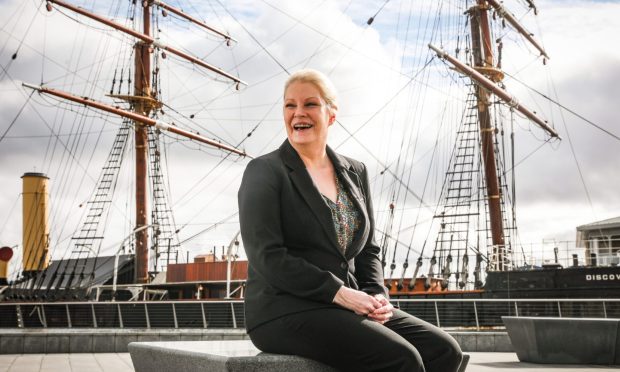They were once the biggest crowd-pullers in British ice hockey history.
Dundee Rockets ruled the domestic ice hockey world in the 1980s and won three Grand Slams and were the first British team to participate in the European Cup.
The club rose from its infancy on the Swannee Ponds and became famous for its Houdini acts including coming back to win a semi-final against Murrayfield Racers after being 8-3 down with just 16 minutes to go.
But the demise of the Rockets happened just as quickly as success on the ice and by 1989 top-class hockey came to an end in Dundee.
The all-conquering Rockets were initially formed as a ‘feeder’ team for the professional Dundee Tigers after a number of Canadians arrived in Scotland in 1946 to set up an ice hockey league.
There were a number of local Dundee players who were keen to get involved and they were called Rockets after the team the Canadian coach Laurie Merchant used to play for.
The Scottish League joined with the English League to create a British League in 1954 which proved to be disastrous.
The Rockets collapsed in 1955 but were reformed in the late 1960s by a bunch of lads who used to play unorganised hockey on Swannee Ponds whenever the temperature dropped and the water froze.
Guys like George Reid, Molly Reid, Bertie Ross, Willie Murray and Chris Farrell used to stump up two shillings and six pence every time they met which helped raise enough funds for sticks and equipment.
The Rockets eventually took on the Tigers colours but with no home ice for games or practice they would travel to Kirkcaldy or Edinburgh.
They played one game against Murrayfield Racers second team in Edinburgh where they played in old jerseys and trousers.
There was another occasion where they arranged a match at Durham with a 2pm face-off.
They set out in the early morning but one of the cars broke down in Perth.
They had to send word back to Dundee to hire a replacement.
The first of the squad didn’t arrive at the rink until 7pm with one stick and a pair of skates each.
The crowd of 2,000 which had been there in the afternoon but were long gone.
They borrowed jumpers and played the game with the latecomers in the van taking the ice when they could.
The Rockets finally got a home rink at Kingsway and played their first game there against Murrayfield on January 12 1969 with the crowd bursting at the seams.
A crowd of over 3,000 watched a 5-2 win and 2,000 people were turned away at the door.
The Rockets won the Intermediate League in 1968-69, the Northern League in 1972-73 and the Spring Cup in 1973-74, plus a host of local competitions.
The club found themselves in the cold again and lost their league place and then home ice.
They returned again under Tom Stewart and won the Scottish National League in 1981-82, and the British Championship in 1982.
From 1983 to 1987 the Rockets played in the British Hockey League Premier Division, winning the league in 1982-83 and 1983-84.
The Rockets won the Heineken Championship in 1983 and 1984, and the Autumn Cup in 1983-84.
George Reid was the captain when they won the Grand Slam three years in a row after playing in the first game after the club reformed in 1969.
The team was made up of British players with an additional three import players who were on full-time contracts.
Scotland international Dougie Scrimgeour started playing hockey from the age of 12 and came through the ranks from 1969 after the Rockets returned to Dundee Ice Rink.
He worked for Stewart’s scaffolding business Monday to Friday and played for the Rockets at the weekend and became famous when BBC Grandstand and ITV’s World of Sport covered the games.
“We would play home games in front of 2,000 fans and I got used to signing autographs and being stopped in the street,” he said.
“It was stardom at the weekend playing at places like Wembley before you were brought back down to earth and grafting again on a Monday morning.
“We became untouchable in the early 80s.
“We won the Grand Slam three years in a row and nobody could touch us.
“To play for your city and your country was a great achievement and it was down to hard work and commitment.
“I played with some great players during my career and I also had the chance to play in Europe against some of the best in the world.
“Playing for the Rockets at that time was special and we made history and put Dundee on the map.
“I was lucky to be part of something which was unforgettable.”
Rockets started the 1981-82 season by bringing in Mike Ward and Charlie Kinmond, along with brothers Ronnie and Ally Wood.
Scrimgeour said the trump card was signing Chris Brinster, Roy Halpin and Kevin O’Neill who were the three imports brought in from Concordia University in Canada.
“Roy had been playing in Japan and they offered him a lot of money to stay but he decided he wanted a new challenge in Dundee,” said Doug.
“Roy was in my day the best player ever to play for the Rockets and scored over 400 goals and 350 assists before suffering a long-term injury which forced him to retire.
“We swept all before us but it’s just a shame we couldn’t get past the preliminary stage of the European Cup and went down to Danish champions Rodovre SIK and CS Megeve from France.
“NHL legend Garry Unger arrived in 1985 after Roy Halpin retired but we struggled to hit the heights and the results became average and the silverware dried up.
“The 1987 season was the end for the Rockets and Tom Stewart relinquished his ties with the team.
“The players moved on and the Rockets were no more.”
Roy Halpin was offered a contract by the Toronto Maple Leafs in 1979 but chose to continue his studies in his native Quebec.
In 1980 he played in an ice hockey tournament in Dundee with the Concordia Stingers before he played in Japan for Snow Brand Sapporo.
The Stingers men's hockey team has a long standing relationship with Dundee, Scotland playing exhibitions and sending players to pro teams since the early 1980s. These guys were on the first tour and more recently star Anthony Beauregard signed with the @DundeeStars. #CUstingers pic.twitter.com/JiJrmEQ1jf
— Concordia Stingers (@The_Stingers) June 20, 2019
Halpin returned to Dundee to play for the Rockets at the start of the 1981–82 season and found his way into the Guinness Book of Records for the most goals in one British League game which was 14 against Durham Wasps.
He was also the holder of the British senior record for a season with 151 goals and 254 points in 48 games in 1981-82 and said his outstanding memories of playing for the Rockets was winning the British Championship three years in a row.
“Some folk will tell you the first is always the best, but each one gave me a great thrill,” he said.
“I got a thrill out of breaking the league record with 14 in one match, but I’ve made a point of never looking closely at scoring statistics.
“Ice hockey is a team game and anyone who tells you otherwise doesn’t know what they are talking about.
“Any goals I scored here weren’t for personal satisfaction, they were for Dundee Rockets.”
During his time at the Rockets, Halpin received many offers to move to other clubs from Finland, Japan, France and Italy, as well as a long line of British clubs.
“My stock reply was that I wouldn’t leave Dundee at any price,” he said.
“Salary never came into it.”
Halpin was inducted into the British Ice Hockey Hall of Fame in 1986.
A second Dundee Tigers team was founded in 1987 following the demise of the Rockets.
They were renamed the Tayside Tigers in 1988 before being dropped from the top flight in 1989 following the closure of the Dundee rink.
The ‘old rink’ was demolished for a Tesco site in 1990 before the sport returned following the opening of Dundee Ice Arena at Camperdown Leisure Park in 2000 at a cost of £6.6 million.
Players who played for Great Britain during their time with the Rockets were Jimmy Pennycook and Mike Ward while Scotland caps went to Peem Lafferty, Joe Guilcher, Dougie Scrimgeour, Tom Stewart, Sam McDonald, Charlie Kinmond and Molly Reid.
Ed Gorrie, the former Evening Telegraph sports editor, said Dundee Rockets were “invincible” when they were at the height of their powers in the 1980s.
Mr Gorrie covered ice hockey for 20 years under the byline Centre Ice and said Roy Halpin was the name which really stood out during the halycon days of the Rockets.
“The Rockets were very much a family club and the players made very long and fruitful relationships and bonds that remain in place to this very day,” he said.
“It started off as a past-time for me – more or less a hobby – which developed into a labour of love and took me all over the country in what was an unforgettable 20 years.
“I used to get home in the early hours of Monday morning and sometimes I would have to go straight to the office to start work and write my copy.
“The Rockets put Dundee on the ice hockey map and every other team in Britain wanted to beat them – if they did it was seen as the greatest thing since sliced bread because they were seen as invincible.
“I remember when the Rockets played in the British finals at Wembley and the semi-finals were on Saturday night and the final was played on the Sunday afternoon.
“I was working a shift for the Sporting Post and straight afterwards jumped on a sleeper train with my daughter to London without actually knowing if the Rockets would be in the final!
“We found a public phone box outside Kings Cross when we arrived and called my wife to find out if they had won!”
Mr Gorrie said he recalled one game at Crossmyloof ice rink in Glasgow in the early days of the Rockets when the team were 15-0 down and the goalie decided to take drastic action.
“Pete Smith turned his goal round facing away from the play to stop Glasgow from adding to the humiliation,” he said.
“There was another memorable incident involving the import Chris Brinster who managed to drop the British Championship trophy at Kings Cross Station.
“The cup fell to the ground and the whole station fell completely silent and I will never forget the look on his face when it struck the platform!”
Mr Gorrie also recalled another story which summed up the stamina of the team when five players decided to run the Dundee Marathon following a British Championship final.
He said the match was being played at Streatham ice rink in London and Roy Halpin, Chris Brinster, Al Le Blanc, Tom Stewart and Joe Guilcher got on the sleeper to Dundee immediately after the match.
They arrived back in Dundee first thing on Sunday morning, changed into their running gear, and headed straight for the starting line before completing the 26-and-a-half mile course.
